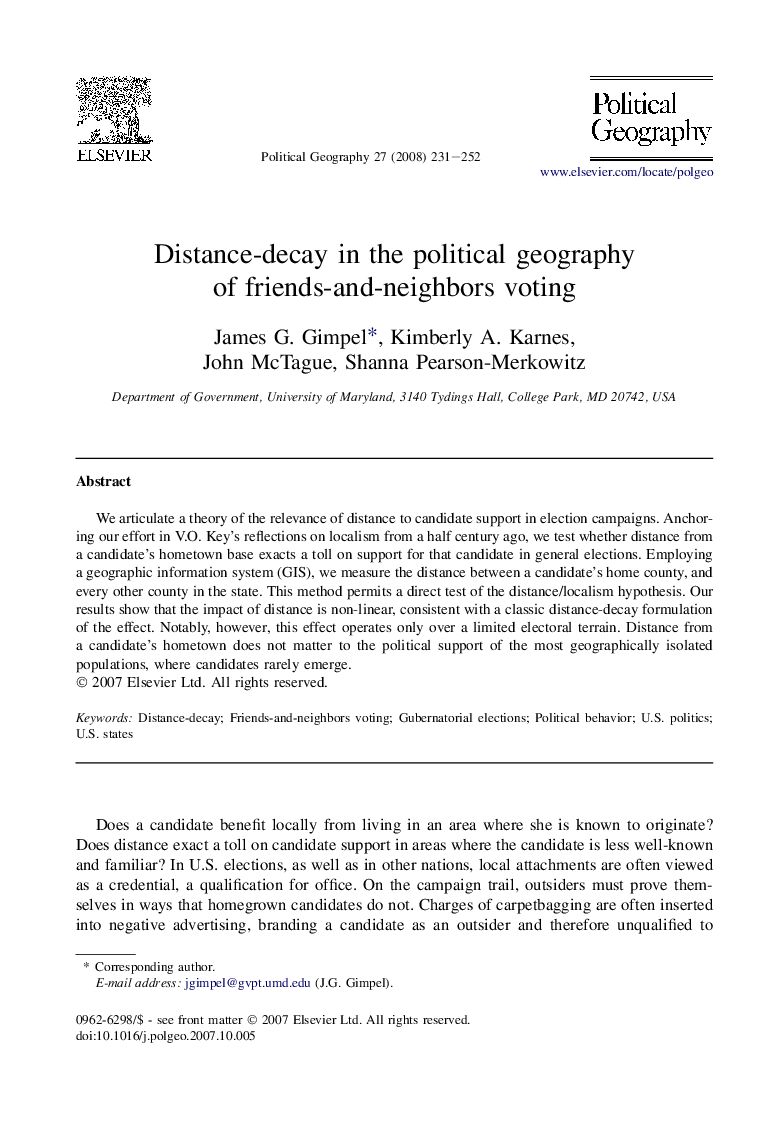| Article ID | Journal | Published Year | Pages | File Type |
|---|---|---|---|---|
| 1062516 | Political Geography | 2008 | 22 Pages |
We articulate a theory of the relevance of distance to candidate support in election campaigns. Anchoring our effort in V.O. Key's reflections on localism from a half century ago, we test whether distance from a candidate's hometown base exacts a toll on support for that candidate in general elections. Employing a geographic information system (GIS), we measure the distance between a candidate's home county, and every other county in the state. This method permits a direct test of the distance/localism hypothesis. Our results show that the impact of distance is non-linear, consistent with a classic distance-decay formulation of the effect. Notably, however, this effect operates only over a limited electoral terrain. Distance from a candidate's hometown does not matter to the political support of the most geographically isolated populations, where candidates rarely emerge.
